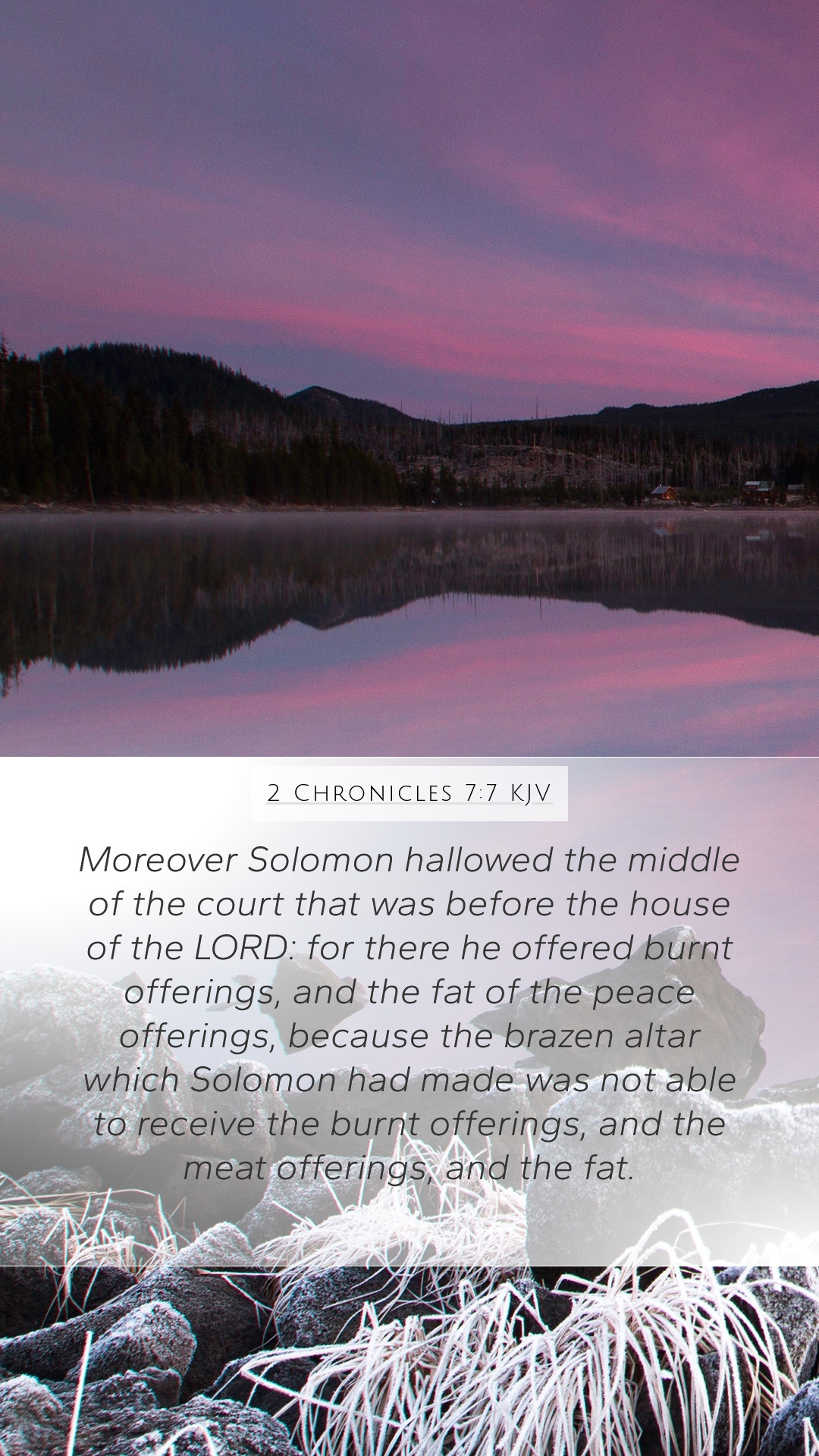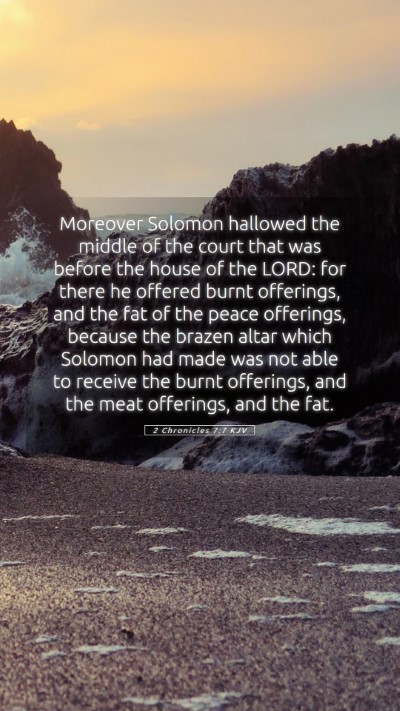Understanding 2 Chronicles 7:7
Bible Verse: 2 Chronicles 7:7 - "Moreover Solomon hallowed the middle of the court that was before the house of the Lord: for there he offered burnt offerings and the fat of the peace offerings, because the brass altar that was before the Lord was too little to receive the burnt offerings, and the fat of the peace offerings."
Overview
This verse describes a significant moment in the dedication of the temple that Solomon built for the Lord. It illustrates Solomon’s actions in setting apart a specific area for worship and sacrifice. The verse highlights the importance of dedicating space and offerings to God, reflecting the overarching theme of reverence and holiness in approaching God.
Key Insights from Commentaries
- Matthew Henry:
Henry emphasizes the theological implications of Solomon's actions, noting that it demonstrates a proper response to God’s greatness. The act of hallowing, or setting apart, indicates Solomon's recognition of God’s holiness and the need for appropriate worship practices in the temple.
- Albert Barnes:
Barnes points out that Solomon's use of the middle court signifies the inclusion of a wider space for offerings—showing the abundance of sacrifices being offered. This demonstrates the richness of worship from Solomon and the people's desire to honor God through sacrifices, indicating a time of great spiritual significance.
- Adam Clarke:
Clarke elaborates on the contrasting elements in the verse—the previous altar being inadequate for the offerings and the transition to a larger space for communal worship. He highlights the importance of realizing the need for our offerings to be acceptable and substantial in God’s sight, urging the idea that worship should be given freely and generously.
Context and Historical Significance
This verse is situated within the broader context of the temple dedication ceremony, a pivotal event in Israel's history. The significance of this moment cannot be overstated; it marks the point where God's presence was to dwell among His people in a tangible manner. Solomon’s actions reflect both obedience and a heart attuned to God’s desires for worship.
The Importance of Worship Spaces
The notion of hallowing the temple court signifies a profound understanding of divine space within the context of biblical worship. It affirms the need for dedicated spaces where believers can meet with God, reflecting on their sacrifices and offerings. This practical application encourages modern readers to consider their own spaces of worship and how they might dedicate those to God.
Practical Applications
This scripture encourages believers to evaluate their worship practices. Are our offerings—both tangible and intangible—reflective of our gratitude and recognition of God’s sovereignty? The call to dedicate our actions, spaces, and gifts to God remains relevant. It invites us to consider how we might rearrange our lives to make room for worship both privately and corporately.
Cross-references for Continued Study
- Exodus 30:18-21: Instructions on the bronze basin for washing, symbolizing the need for cleanliness in approaching God.
- 1 Kings 8:63: Solomon's vast offerings during the temple dedication, showcasing his commitment to God.
- Psalm 51:16-17: The plea for a contrite heart, emphasizing the essence of true worship beyond mere rituals.
- Hebrews 13:15-16: The New Testament understanding of sacrifices—praise and good deeds being pleasing to God.
- Acts 2:46-47: The early church’s dedication to communal worship, paralleling Solomon's intentions.
Conclusion
In summary, 2 Chronicles 7:7 serves as a profound reminder of the importance of dedicating our worship to God. Through the insights from respected commentaries, we see the emphasis on holiness, space for worship, and the nature of acceptable offerings. This scripture invites us to engage deeply with our faith, ensuring that our acts of worship are both reverent and reflective of a genuine relationship with God.


